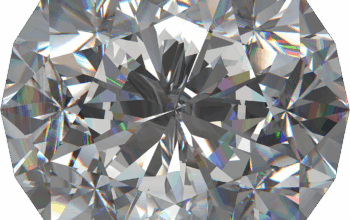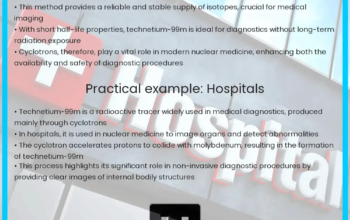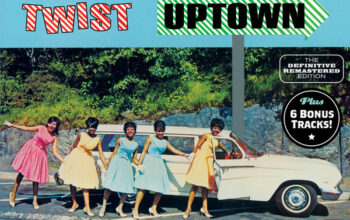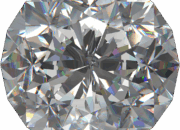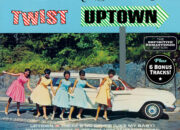Embarking on a PhD journey in physics is akin to navigating a vast cosmic ocean, where various professional currents can either propel one toward a successful career or lead to stagnation. While it is essential to dive into the depths of academic research, many scholars often ponder the feasibility of securing part-time employment during this rigorous intellectual odyssey. The intersection of academia and the professional realm presents unique opportunities for those brave enough to traverse these waters. This exploration elucidates the myriad of jobs that one may undertake while pursuing a PhD in physics, outlining their roles and applicability in the grander scheme of scientific inquiry.
1. Teaching Assistantships: The Cornerstone of Academic Engagement
In the realm of academia, the role of a teaching assistant (TA) often acts as a lifeboat, offering both financial support and experiential learning. TAs have the opportunity to facilitate undergraduate courses, orchestrating laboratory sessions or leading discussion groups. This position not only sharpens pedagogical skills but also deepens one’s own comprehension of complex concepts. Through iterative teaching, one cultivates the ability to distill intricate theories into accessible, digestible formats. Such experience is invaluable, enhancing one’s academic profile while fostering a community of learners.
2. Research Assistantships: A Deeper Dive into Discovery
Research assistantships serve as a fertile ground for academic growth and exploration. Here, scholars can immerse themselves in cutting-edge research while contributing to the advancement of their field. These positions typically involve working alongside faculty or research teams on experimental setups, data analysis, or theoretical modeling. The hands-on experience gained is often transformative, allowing for a practical application of theoretical knowledge. Moreover, this role shines a spotlight on one’s analytical skills and expertise, qualities that are keenly sought after in both academic and industrial domains.
3. Internship Opportunities: Bridging Theory and Application
Internships, particularly in industry, provide a delightful juxtaposition to the theoretical foundations laid in academia. Here, physics PhD candidates can interact with real-world applications of their studies, perhaps in sectors such as telecommunications, aerospace, or data analysis. Engaging with corporate entities can lead to the development of crucial professional networks and a deeper understanding of how physics enriches various industries. The skills honed in an internship—problem-solving, teamwork, and project management—are essential for a successful career post-PhD.
4. Freelance Consulting: The Independent Voyager
For those who prefer a more autonomous route, freelance consulting emerges as an enticing option. With a wealth of knowledge and specialized expertise, one can offer insights to businesses and organizations. This may encompass advising on optical technologies, predictive modeling, or even contributing to grant proposals. Freelancing not only enhances one’s professional portfolio but cultivates a flexible work schedule, allowing for the simultaneous pursuit of research and personal interests. Such professionals embody the spirit of innovation, often leading to breakthroughs by operating outside traditional confines.
5. Tutoring and Educational Programs: Illuminating Young Minds
Tutoring represents a splendid amalgamation of mentorship and knowledge dissemination. By volunteering or working within educational programs, PhD students can guide high school or undergraduate students in understanding the wonders of physics. This engagement serves dual purposes: reinforcing one’s own understanding while inspiring the next generation of scientists. In an era where science communication is paramount, this role fosters a deeper appreciation for the discipline while honing one’s communication skills—a vital asset in both academic and public spheres.
6. Outreach and Public Engagement: The Ambassador of Science
As stewards of knowledge, physics PhD candidates can become ambassadors of science through outreach programs. Participating in events such as science fairs, public lectures, or workshops enhances the visibility of physics as a subject of intrigue. This role demands not only a rich understanding of physics but also the ability to convey complex concepts to a diverse audience. Engaging the public fosters enthusiasm for the sciences, simultaneously enriching one’s own perspective through collaborative learning.
7. Science Communication and Journalism: Crafting the Narrative
The art of science communication emerges as an essential vocation for those with a penchant for prose and storytelling. Writing for science publications or creating educational content allows physics scholars to reach a broader audience. As seekers of truth, physicists can transform dense scientific literature into engaging articles that ignite curiosity and dispel misconceptions. Such opportunities refine writing abilities and showcase the multifaceted nature of physics, weaving intricate narratives that connect science with everyday life.
8. Entrepreneurship: Launching the Next Great Innovation
Lastly, for the audacious and enterprising, launching a startup or developing innovative technology offers an exhilarating career trajectory. PhD candidates can explore the commercial viability of their research, seeking to solve pressing societal problems through innovative solutions. This path demands entrepreneurial acumen—business planning, branding, and market analysis become as important as theoretical knowledge. This venture into the business realm is a daring leap, combining scientific inquiry with the promise of economic impact.
In conclusion, pursuing a PhD in physics does not necessitate a solitary existence confined to the walls of academia. Instead, it opens a myriad of avenues for professional engagement that enrich the scholarly experience and cultivate essential skills. As scholars navigate this intricate landscape, each role—from teaching and research assistantships to consulting and outreach—presents a unique appeal, transforming the daunting journey of academic pursuit into an exciting expedition filled with discovery and growth. These diverse opportunities not only underscore the relevance of physics in contemporary society but also highlight the dynamic interplay between intellectual pursuit and real-world application.


